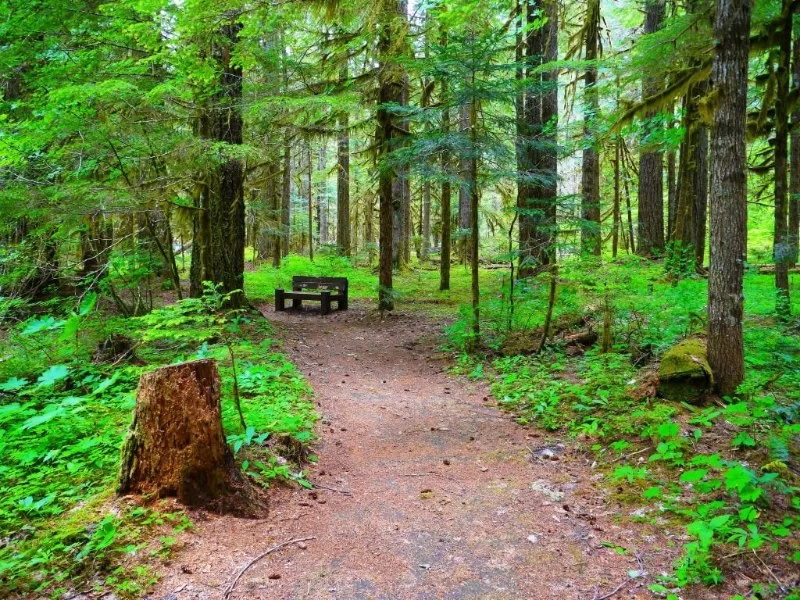Discover the best campgrounds for hiking trail networks across the U.S. From national parks to hidden lakeside trails, explore real traveler stories and expert recommendations from Pine Cliff Resort.

- 1 - The Magic of Hiking Trail Networks
- 2 - Best Campgrounds in the Mountains
- 3 - Lakeside Campgrounds with Scenic Trails
- 4 - National Parks for Hikers and Campers
- 5 - Hidden Gems and Local Favorites
- 6 - Real Hiker Story: The Call of the Trails
- 7 - How to Choose the Right Campground
- 8 - Plan Your Next Adventure with Pine Cliff Resort
The Magic of Hiking Trail Networks
There’s something uniquely powerful about waking up to the sound of wind through pines and stepping directly onto a trail that winds through miles of wilderness. The best campgrounds for hiking trail networks don’t just offer a place to sleep—they open doors to adventure. These campgrounds are hubs of connection, where hikers can explore forests, lakes, waterfalls, and mountains without ever needing to drive.
For outdoor enthusiasts, trail networks are like nature’s veins—interconnected paths that let you explore ecosystems at your own pace. Whether you’re an early riser chasing sunrise summits or a slow wanderer following rivers, the right campground can transform an ordinary hike into an unforgettable journey.
Best Campgrounds in the Mountains
1. Glacier National Park, Montana
Home to more than 700 miles of interconnected trails, Glacier National Park offers some of the most breathtaking camping in North America. Campgrounds like Many Glacier and Avalanche Creek give hikers immediate access to alpine meadows, glacial lakes, and panoramic mountain views. It’s ideal for those seeking both serenity and challenge in one destination.
2. Great Smoky Mountains, Tennessee
For those looking for variety, the Great Smoky Mountains offer trails for every level—from the gentle Laurel Falls walk to the challenging Alum Cave Bluffs. The Elkmont Campground sits right by several trailheads, making it one of the best campgrounds for hiking trail networks in the Southeast.
Lakeside Campgrounds with Scenic Trails
1. Lake Tahoe, California/Nevada
Imagine pitching your tent just steps away from crystal-clear waters surrounded by pine forests. Trails like the Tahoe Rim Trail stretch for over 165 miles, offering a perfect blend of lake views and mountain climbs. You can spend one day paddleboarding and the next exploring hidden alpine paths.
2. Finger Lakes, New York
For a more tranquil retreat, the Finger Lakes region offers rolling vineyard views and waterfall-laced trails. Watkins Glen State Park’s gorge trail is particularly famous, cutting through a canyon with 19 waterfalls. Campers often say the sound of falling water is the best lullaby they’ve ever had.
National Parks for Hikers and Campers
1. Yosemite National Park, California
Yosemite’s campgrounds are surrounded by world-famous trails like Mist Trail and Half Dome. Whether you’re camping at Upper Pines or Tuolumne Meadows, you’re only minutes away from granite cliffs, giant sequoias, and iconic viewpoints. Even short hikes here feel monumental.
2. Zion National Park, Utah
Zion’s South Campground is legendary among hikers. From your tent, you can walk straight onto the Watchman Trail or head into the Narrows for a bucket-list hike through water-carved canyons. The warm sandstone walls glow at sunset, creating scenes that look like living paintings.
Hidden Gems and Local Favorites
While national parks steal the spotlight, smaller regional campgrounds often surprise travelers with equally stunning hiking networks. For instance, Washington’s Deception Pass State Park connects over 30 miles of coastal trails with ocean views, while Arkansas’s Petit Jean State Park blends mountain overlooks with ancient rock formations.
These lesser-known destinations are often less crowded and offer a sense of discovery that big parks can’t. They’re perfect for hikers who love peace, wildlife, and long, reflective walks.
Real Hiker Story: The Call of the Trails
Mark and Lindsey, a couple from Colorado, spent last summer traveling cross-country in their RV. They made it their mission to find the best campgrounds for hiking trail networks—and stumbled upon one unforgettable spot in Oregon. “We camped under a full moon at a small forest site near Crater Lake,” Lindsey recalls. “We woke at dawn and hiked through mist-covered trails leading to the rim. That view made every mile worth it.”
Their story mirrors what so many outdoor lovers experience: that rare balance between comfort and adventure that only the right campground can provide.
How to Choose the Right Campground
1. Match the Trails to Your Skill Level
Before booking, check trail maps and elevation profiles. Families may prefer gentle loop trails, while seasoned hikers might seek multi-day backpacking routes. The best campgrounds often provide trail access directly from camp.
2. Consider Amenities and Accessibility
Look for campgrounds with clean facilities, water access, and nearby stores for gear or food. Some parks offer showers and electric hookups for RVs, making longer stays more comfortable without losing the wild charm.
3. Think About Scenery and Season
Mountain trails offer cool air in summer, while desert trails shine in spring and fall. Lakeside camps are best in mid-summer when swimming and kayaking complement hiking days.
Plan Your Next Adventure with Pine Cliff Resort
At Pine Cliff Resort, we believe every great adventure begins with the perfect base camp. Whether you’re chasing alpine views, serene lakesides, or deep-forest solitude, we help travelers find destinations that match their hiking style and comfort needs. Our team curates experiences for both new explorers and seasoned adventurers looking for hidden gems.
From detailed campground recommendations to outdoor gear tips, Pine Cliff Resort connects you with the best places to hike, camp, and reconnect with nature. Your next unforgettable journey is just a trail away—start planning it with us today.
Wapsipinicon State Park Campground
21309 Co Rd E34, Anamosa, IA 52205, USA
Visit Location PageCedar View West Campground
Cedar View Reservoir Rd, Neola, UT 84053, USA
Visit Location Page